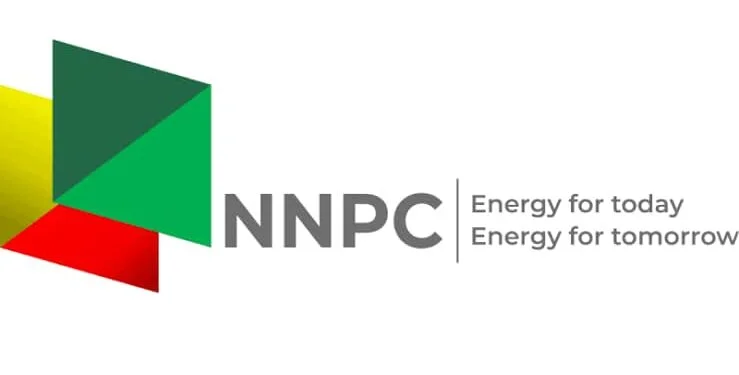The new year has arrived, and I hope that 2022 will be a prosperous year for all individuals, enterprises, and households. Our new year’s resolutions at all levels must involve increased productivity and performance. Without a question, transportation is critical to this and can be a good predictor of performance in any economy, business, or quality of life. Simple tasks such as getting to work, school, meetings, appointments, trade facilitation, transacting, transporting commodities, traveling, and even delivering social services such as rescues during emergencies can become extremely difficult with inadequate transportation. In fact, I believe that excellent transportation is critical to business decision-making and access to everything necessary for economic success.
Certainly, every nation, regardless of population size, degree of development, or industrial capability, may profit from an effective transportation network, whether by road, river, rail, or air. On the contrary, transport poverty develops when an economy’s transportation modes are inefficient. This is the case in many African countries and cities, including Benin, Ethiopia, Nigeria, Uganda, Tanzania, and Lusaka, Zambia, among others.
In many industrialized countries, transportation plays an important part in the ease of doing business, and the government is heavily involved in its implementation and management. A recent visit to the United Kingdom and the United Arab Emirates clearly revealed that when there is efficient transit and less traffic congestions, the economy and businessesare positively impacted. According to my observations in both nations, public transportation — which includes buses, taxis, water ferries, trains, trams, and metros — is appropriately regulated by the government and is not entirely driven by the private sector, resulting in its efficiency and reliability. As previously said, when private corporations are involved in operations, they normally follow an agreed-upon model, such as the Public-Private Partnership model.
Ironically, in many African cities, particularly in my home country of Nigeria, the unreliability of the transportation system has continued to hinder access to services, business, trade facilitation, the attraction of foreign direct investment, and the government’s revenue push. The pilot region of observation is Lagos State, the economic centre of Nigeria, where transport operations are largely run informally by private individuals. This makes the services undesirable because of the inefficiencies that exist due to under-regulation. For instance, car reliance keeps compounding in the state because of poor demand responsiveness of public transports. Commuters then tend to avoid the long queues and waiting hours at bus stops, and the associated risk of using public minibuses called ‘Danfo.’ But the result is usually a waste of productive hours by many commuters in traffic congestions. Sometimes bike taxis which are usually referred to as Okada are considered for mobility. Though this trend depicts transport poverty, it is largely heightened by the informality of public transport, widespread unemployment, lack of worthiness of the available transportations, lack of adequate maintenance system, giving rise to high traffic congestion on the roads and expensive transport fares.
Basically, over-reliance on one mode of transportation — road transport — and over-exposure to informality are the concerns that are slowing down the sector’s growth. As previously stated, private engagement with little or no government entrance barrier encourages informality. Such as the operations of the non-conventional ferry on the canals, motorized tricycles, and the Okadas and Danfos in the hinterlands. Unfortunately, despite widespread instability and risk, they are the only economical treatments available to the poor. In the United Kingdom, particularly in London, a smartphone application provides the majority of information regarding the city’s public transport system and regulations, such as fares, routes, and arrival and departure times. That is, if you must operate, you must notify the government; this approach lowers informality. Logistics and company supply chains in both the United Kingdom and the UAE are effective because they rely on adequate transportation infrastructures and rigorous laws, which decreases the cost of business operations.
Closed-circuit television is implemented in most public transit systems for safety and security purposes. Most public transportation systems also accept transport cards for payment, providing a convenient environment for the general public, visitors, and tourists. Strict restrictions also allow the government to oversee many of these services, ensuring that operators are accountable, and monitoring service patterns. For example, in the UAE, there were approximately 600 million public transportation rides in a single year (in a metropolis of three million people). This reflects the rate at which visitors and locals are switching to the public transportation system in a region that was previously primarily driven by private vehicles.
This indicates that people move about easily and use public transit since it is timely, economical, and readily available. With such a system in place, firms can make estimates and benefit from a dependable supply chain free of unforeseen logistical concerns. With this experience, I strongly believe that there is a clear tie between the growth of the transportation system and the convenience of conducting business in any country. In fact, without a doubt, it is easy to conclude that transportation can be a useful criterion for measuring development in a country. Because improved transportation efficiency must have a favorable impact on a country’s economic development as well as the performance of its enterprises. It is a no-brainer or miracle that such a system can be implemented in Nigeria with stronger regulation, reduced informality, and significant investment in the sector.
Though Nigeria has experienced hectic traffic congestion, including at ports, poorly maintained roads, overstressed railways, underutilisation of waterways, long hours of waiting for access, and inadequate infrastructure, there should be a concerted effort to increase the percentage of public transportation, expand modes, and implement a stricter regulatory regime. For safety and security considerations, the ease with which informal transport companies can enter the sector needs to be reviewed because it appears that is majorly the issue. Government entrance barriers are restrictions that make it difficult for an individual or business to participate in a particular area, such as the aviation industry.
To accomplish large-scale economic growth and modernization, it is critical to strengthen transport policies and regulations, as well as increase transportation networks. Though it can be contested, excellent transportation has the potential to reduce poverty in the country. Because the current chaotic congestion on roads and in ports is effectively assisting market failures and impeding the ease of doing business in the country, both of which are enablers of firm closures and impoverishment. As a result, when transportation is effective and efficient, firms can make proper estimates, enhance production, produce faster, reach consumers faster, and attend business.
Truthfully, the transportation sector can provide the necessary diversity of the government’s revenue creation effort. I am aware that the country’s current public debt is over N38 trillion, according to Debt Management Office estimates, which is mostly owing to income issues. In my perspective, a well-regulated and efficient transportation system can generate cash for the government.
Finally, it is vital to emphasize that enhanced transportation modes—air, rail, and water networks, as well as road network expansion—can boost economic output, reduce production costs, and improve the country’s ease of doing business. For thinkers, the difficulties outlined above can provide mind-blowing opportunities, notably for investors and enterprises. Businesses and individuals can benefit from increased mobility, access, and income.













